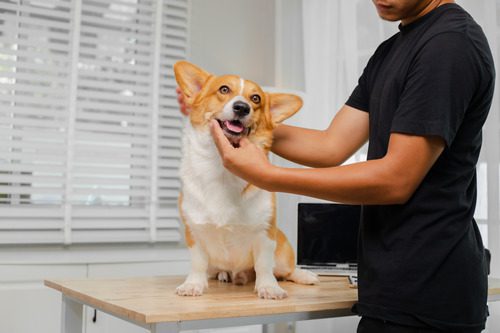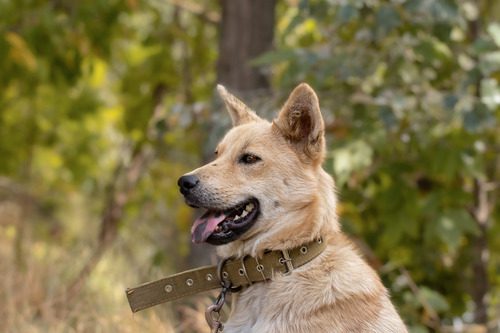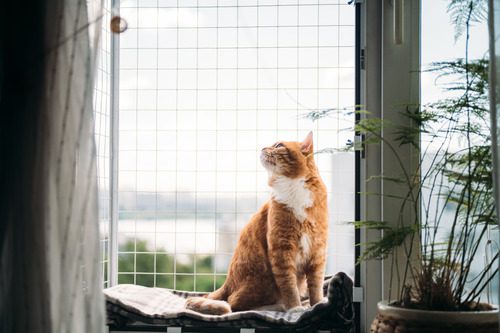Dog Loose Tooth: What to Do
When you notice a dog’s loose tooth, it can be an alarming discovery. Dental issues in dogs are more common than many pet owners realize, and a loose tooth often signals an underlying problem that requires veterinary attention. Whether your dog is still a puppy losing baby teeth or an adult with a dental concern, knowing what a loose tooth might mean and how to respond helps you protect their long-term oral health. In this blog, we’ll explore the common causes of a dog loose tooth, what it may signal at different life stages, and why timely veterinary care is so important. If you’re concerned about your pet’s dental health, call Cornerstone Veterinary Hospital of Saratoga Springs at (518) 691-3300.

Why a Dog Loose Tooth Should Not Be Ignored
A dog loose tooth is not just a minor inconvenience. It often points to more serious oral health concerns. While some cases are part of a normal process, such as teething in puppies, adult dogs should not naturally lose teeth. If you notice a loose tooth in your dog’s mouth, it’s a sign that something else may be happening.
Dental disease is one of the most common health problems in dogs, and a loose tooth may indicate gum disease, infection, or even trauma to the mouth. Leaving the problem unaddressed can lead to discomfort, difficulty eating, and the spread of infection. A professional examination ensures your veterinarian can identify the root cause and recommend the right treatment plan.
Common Causes of a Dog Loose Tooth
Several factors can contribute to a dog’s loose tooth, depending on their age, breed, and oral health history.
Puppies and Teething
If your puppy has a loose tooth, it’s usually a normal part of development. Just like children, puppies lose their baby teeth to make way for permanent adult teeth. This typically happens between three and six months of age. During this time, you may notice small teeth on the floor, embedded in toys, or dangling loosely in their mouth.
Periodontal Disease in Adult Dogs
The most common cause of a dog loose tooth in adult dogs is periodontal (gum) disease. Over time, plaque and tartar build up on the teeth, leading to inflammation of the gums. As the condition worsens, the supporting structures of the tooth weaken, and teeth may loosen or even fall out. This process can also cause pain, bleeding, and infection.
Injury or Trauma
A dog loose tooth may also result from trauma, such as chewing on a hard object, accidents during play, or injuries to the face. In these cases, the tooth may become fractured or loosened from its socket, which requires prompt veterinary evaluation.
Advanced Dental Infection
An untreated dental infection can spread beneath the gumline, causing damage to the roots of the teeth and the surrounding bone. When this happens, a dog loose tooth may be one of the first visible signs of a more serious condition.
Symptoms That May Accompany a Dog Loose Tooth
A loose tooth rarely appears in isolation. Pet owners should watch for additional signs that may indicate discomfort or oral health issues.
Visible Signs in the Mouth
- Swollen or bleeding gums
- Redness or inflammation around the tooth
- Discolored buildup on the teeth
- Pus or discharge near the gumline
Changes in Behavior
- Dropping food while eating
- Pawing at the mouth or face
- Reluctance to chew toys or dry kibble
- Bad breath that doesn’t improve
When these symptoms appear along with a dog loose tooth, it strongly suggests that your pet needs veterinary dental care.
How Veterinarians Diagnose and Treat a Dog Loose Tooth
Veterinary evaluation is the only way to properly diagnose the cause of a dog loose tooth. At Cornerstone Veterinary Hospital of Saratoga Springs, our team uses advanced diagnostics and dental care techniques to address these concerns.
Dental Exams and Imaging
A physical oral exam often reveals the condition of the gums, teeth, and surrounding tissue. To gain a clearer picture, veterinarians may use dental X-rays to check beneath the surface and evaluate the roots and jawbone.
Treatment Options
Treatment depends on the cause and severity of the problem:
- Puppy teething: Usually requires no treatment, just monitoring.
- Periodontal disease: Scaling, cleaning, and possibly tooth extraction may be needed.
- Injury-related cases: Depending on the damage, the tooth may need to be extracted or stabilized.
- Advanced infection: May require antibiotics, extractions, and follow-up care.
The goal is to relieve pain, treat infection, and restore your dog’s comfort and oral health.
What You Can Do to Prevent a Dog Loose Tooth in the Future
While some causes of a dog loose tooth are unavoidable, preventive care greatly reduces the risk for most dogs.
Regular Dental Exams
Routine checkups give your veterinarian the chance to identify issues before they become more serious. Annual or semi-annual dental exams are recommended, depending on your dog’s age and health.
Professional Dental Cleanings
Professional dental cleanings remove tartar and plaque buildup that brushing at home cannot. These cleanings help protect the gums and keep the supporting structures of the teeth healthy.
At-Home Dental Care
Brushing your dog’s teeth, using dental treats, and providing safe chew toys can support their oral health between veterinary visits. Consistency in at-home care reduces the likelihood of plaque buildup that can lead to loose teeth.
When to Call Your Veterinarian About a Dog Loose Tooth
If you notice a dog loose tooth, the best step is to contact your veterinarian promptly. Even if your dog seems comfortable, underlying issues may worsen over time. Early intervention can prevent unnecessary discomfort and protect your dog’s long-term health. For expert dental care, call Cornerstone Veterinary Hospital of Saratoga Springs at (518) 691-3300. Our team is equipped to provide compassionate care and ensure your dog’s oral health stays strong.
Protecting Your Dog’s Dental Health for the Long Term
A dog loose tooth can feel alarming, but with timely veterinary care and preventive steps, your pet can enjoy a healthier, more comfortable life. From puppy teething to adult dental disease, each stage of your dog’s life brings different oral health needs. Partnering with your veterinarian for regular checkups and cleanings helps protect their teeth, gums, and overall well-being. If you’re concerned about a dog loose tooth or want to schedule a dental checkup, call (518) 691-3300 to reach Cornerstone Veterinary Hospital of Saratoga Springs today.
Recent Posts
Black Spot on Dog’s Tongue: Is This Normal?
Black Spot on Dog’s Tongue: Is This Normal? When you notice a black spot on your dog’s…
Cornerstone Veterinary Hospital Expands to Saratoga Springs, Bringing Gold Standard Pet Care to More Local Families
In a time when independent veterinary practices are becoming rarer, you deserve a team that puts your…
Cat High Rise Syndrome: What It Is & Treatment Options
Cat High Rise Syndrome: What It Is & Treatment Options Cats are known for their agility, balance,…
- « Previous
- 1
- 2
- 3
- 4
- Next »
About Us
Originally opened as Animal Care Hospital by Dr. Mark Johnston in 1989, the hospital became Cornerstone Veterinary Hospital in 2015 when it was purchased by Drs. Alan and Lisa Knott. The name 'Cornerstone' holds a special place in their hearts, representing not only their Christian faith but also their commitment to being the cornerstone of the community in which they practice. As a family-owned and operated practice, every pet is treated as part of the family, ensuring they receive the highest standard of care. The team at Cornerstone Veterinary Hospital is dedicated to building lasting relationships with clients and their beloved pets, striving to be the cornerstone of the community in which they practice.



